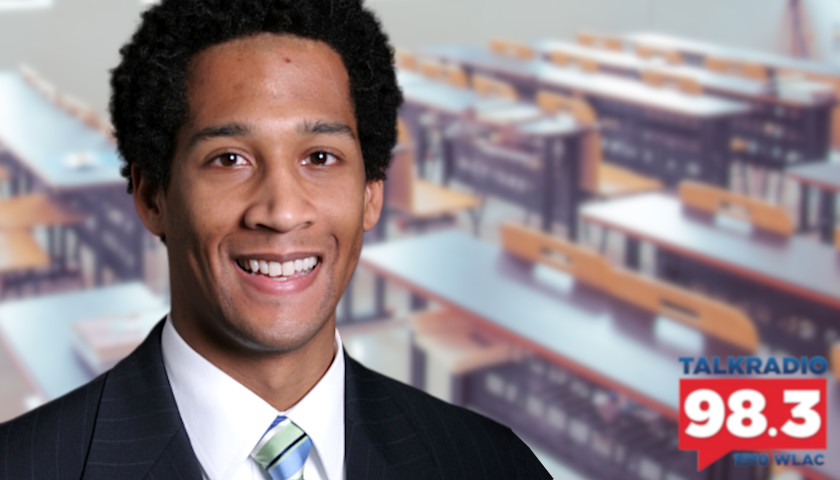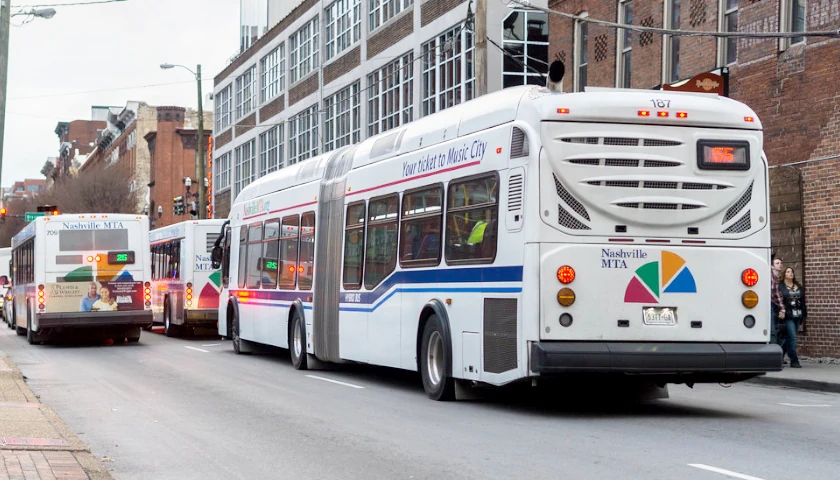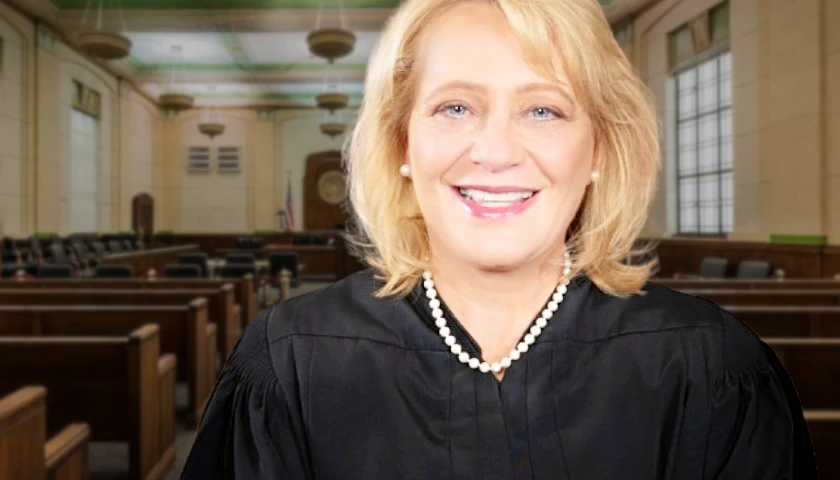Live from Music Row Tuesday morning on The Tennessee Star Report with Michael Patrick Leahy – broadcast on Nashville’s Talk Radio 98.3 and 1510 WLAC weekdays from 5:00 a.m. to 8:00 a.m. – host Cunningham welcomed Tennessee Director of the American Federation for Children Shaka Mitchell to the newsmakers line who explained in detail the purpose of ESA’s and how there is a large amount of parental support for the initiative. He also advised of the upcoming rally in Legislative Plaza this Thursday at 8 a.m.
Cunningham: One of the threats is the continuing erosion of parental authority in education and parents’ ability to make decisions about where they’re going to send their children and what curriculum there’s going to be taught to their children. Shaka Mitchell is with the American Federation for Children and is the state director. Shaka, good morning.
Mitchell: Hey, good morning. Thanks for having me.
Cunningham: Thank you so much for getting up early. We appreciate it. Tennessee has passed the ESA, the educational savings account legislation, but there are some threats to it coming up. There’s a hearing with the Tennessee Supreme Court coming up. Tell us about that.
Mitchell: Yeah. Thanks, Ben. So you’re absolutely right. The state legislature or General Assembly passed the Tennessee Education Savings Account pilot program back in 2019 actually.
It passed in 2019, and there are nearly 3,000 students signed up for the program. And those are students in the Metro Nashville Public School system and Shelby County School system, which are our two biggest districts in the state.
They account for about 20 percent of the state’s children just in those two districts. Well, it always polls so well that to me, that’s no surprise that parents are responding that way because when you ask parents about educational choice, always they always say, yes, we want control over how our children are educated.
Mitchell: Yeah, that’s right. And frankly, that polling has only increased over the past year. The Tennessee General Assembly was ahead of the curve because we passed that ESA law before COVID.
Imagine what happened after you have had a year of many kids in Nashville and Memphis who haven’t been in a school building in a year and a half. So you can imagine how frustrated parents are.
And, so of course, parents are saying, yeah, I’d much rather more control over where my kids learn, what they learn, and how they learn than these districts who haven’t done right by our kids for decades.
Cuningham: Tell us just about the basic mechanics of the ESA. How does it work?
Mitchell: The ESA works a little bit like a health savings account. I’m sure people are getting ever more familiar with that. I won’t bore you to death with education financing because, frankly, you need a Ph.D.
Cunningham: It’s too early in the morning. (Laughter)
Mitchell: But suffice to say, the state government put in just over $7,300 per pupil for every student who attends public school in the state of Tennessee. That’s the state portion alone, not the local, not the federal amount. $7,300.
If a family says, you know what? We want our child to find a different alternative because the zone school is not working for whatever reason, it’s not working for our kids we can take the state funds, and we can use them at a qualifying private school, which just means that there’s some accreditation.
If there’s money left over, you can use the funds for tutoring, for digital tools, like a laptop or Kindle, and that kind of thing. You can roll it over into a college savings account. You can use it for a whole host of educational expenses and you would do that at the parents’ decision.
It’s not this nine-member Pollett Bureau that we like to call the school board. It’s the parents making this decision.
Henry: Hey, Shaka, this is Grand Henry. While I’m here today in my own capacity, I do work for Americans for Prosperity and honestly, let me tell you, on behalf of the 4,600 grassroots folks that we work within Americans Prosperity, we cannot thank you enough.
And American Federation for Children for what you all do for education and particularly with this ESA bill. We had a lot to do with the fight as well, and we loved it. And all of our people love it as well.
I know there’s something coming up with Supreme Court this week on Thursday. What do you need from us? Is there a call for grassroots action? What’s the biggest point of concern? What should we be paying attention to on Thursday?
Mitchell: This is a great question, Grant. And you’re absolutely right. American Prosperity was a great partner and has been for parent choice, educational freedom across Tennessee. This Thursday, two days from now, the Tennessee Supreme Court is going to hear this case, which we’re excited about because as I mentioned, 3,000 kids had already signed up.
Well, after those kids signed up, the city of Nashville and Shelby Counties challenged Governor Lee’s program in court. They basically halted the program, which is a terrible tragedy.
But finally, this thing is up to the Tennessee state Supreme Court. We’re excited about that. So arguments are 9:00 a.m. Central time on Thursday. They will be streaming so you can catch the live stream.
It will be on YouTube. You can go to our website. We’ll have up there Schoolchoicetn.com. Grant, I bet that Americans for Prosperity can get that link out to your followers. And maybe even The Tennessee Star Report can, too. Thursday, we are having a rally downtown at Legislative Plaza. The capital is right there.
The Supreme Court building is right there because we think it’s important for the justices to know this isn’t a hypothetical case. This is the educational future for 15,000 students. This is what’s at stake
Henry: And Shaka, that rally, tell me if I’m wrong here, but it starts at 8 a.m. June 3 at Legislative Plaza.
Mitchell: Thursday, June third. That’s absolutely right. 8:00 a.m. at Legislative Plaza. There’s no need to you don’t need to register anything. Looks to be nice weather. We may get a little bit of rain tomorrow, but I think we’re going to get some nice weather. Listen, we even canceled the cicadas for everybody.
Henry: (Laughs) Was that ya’ll?
Mitchell: That was us.
Henry: We appreciate that.
Mitchell: But I think again, we’ve got to make sure the courts know, hey, this is real. And parents want to have the right to choose their schools, and we think they’ve got the constitutional right.
The U.S. Supreme Court has affirmed that time and time again. We just need these districts to get out of the way. If you all can’t get the job done, get out of the way and let parents have some agency.
Cunningham: Could you expand on that a little bit? Who are the people that oppose giving parents more authority? Who in the world would do that?
Mitchell: It’s a great question and without trying to call anybody any names I think, frankly, it’s the districts who are so satisfied with the status quo. They are satisfied with the status quo because if you are Metro Nashville Public School year after year, you can put out a product that fails students. Three out of four kids in Nashville don’t read on grade level. Three out of four kids.
Cunningham: 75 percent.
Henry: Wow.
Cunningham: My government school math is right.
Mitchell: That’s right. And yet, year after year, the kids keep coming back. They’re not coming back because they’re satisfied with what’s happening or because their parents are satisfied they’re coming back because there’s no other option.
And school choice has always existed for people who can afford it. And you can either afford it because you can pay for the school or you move to another area. But what about for the hundreds of thousands who can’t afford it?
Not that this show would get political or anything, but this year, we seem to be throwing money out the door. Throwing money at all types of different problems. Yet in K-12 education, I believe, because of the Teachers Unions, they have said, you know what, the status quo is still fine.
We’re giving money for PreK. We’re giving money for higher ed. We’re giving money for all different types of things and saying, hey, spend it how you want, but not for K-12. We think that’s got to change.
Henry: Shaka, obviously, with everything going on in the public school system, especially as far as it relates to Tennessee here. And we have one minute left. So I ask this question quickly. Some parents could obviously understand.
Hey, I have more of a reason now to educate my child than ever been before. But there is real statistical evidence behind this ESA being a better version of education. It’s not some animus towards public educators, correct?
Mitchell: Yeah, that’s absolutely right. I know that I’m giving the stats, right? But I’m not making up stats about the public education system. These are facts. My own kids go to a public school.
Listen, if the public school is working for you, that’s excellent. But don’t block someone else in their ability to find a school that works for their child.
Cunningham: Shaka, thanks so much for joining us this morning. It’s always too short. We really do appreciate it. Your rally is Thursday at 8 a.m. And give us your website one more time.
Mitchell: Schoolchoicetn.com.
Listen to the full hour here:
– – –
Tune in weekdays from 5:00 – 8:00 a.m. to the Tennessee Star Report with Michael Patrick Leahy on Talk Radio 98.3 FM WLAC 1510. Listen online at iHeart Radio.
Photo “Shaka Mitchell” by Shaka Mitchell.





